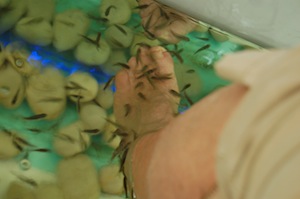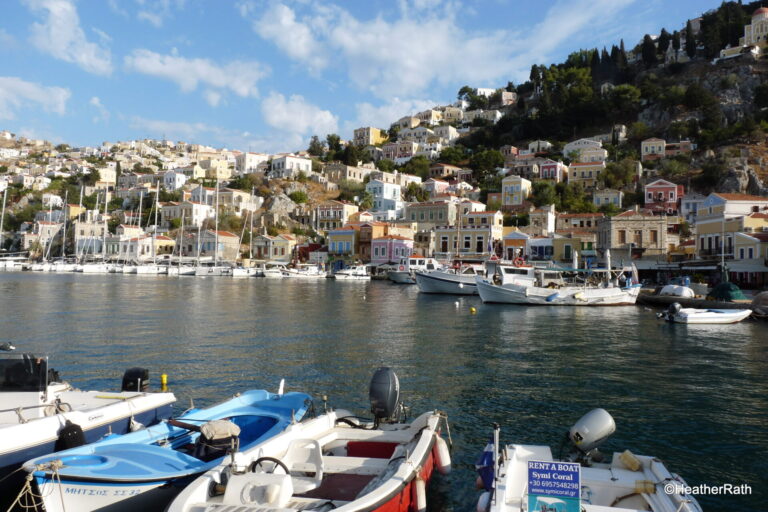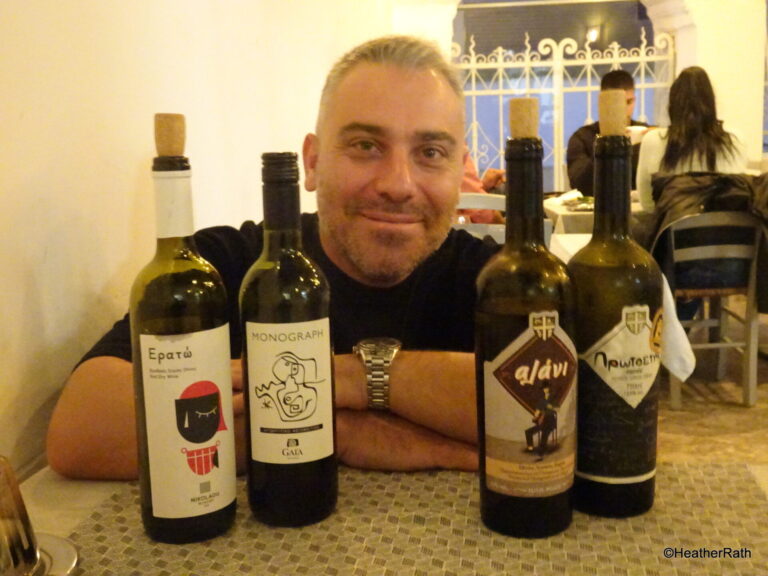The Happy Cooker in Crete

Lacing with Wine
While attending a Greek cooking class in a traditional hillside village of western Crete called Vamos, I learned how to prepare Greek culinary delights and became a happy cooker.
Lacing our course with liberal glasses of village wine produced instant smiles!
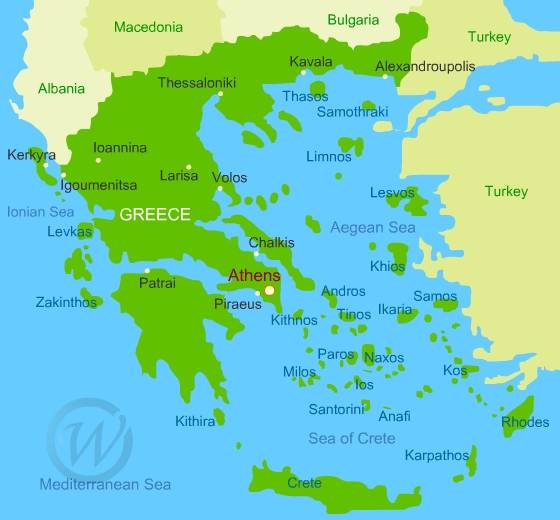
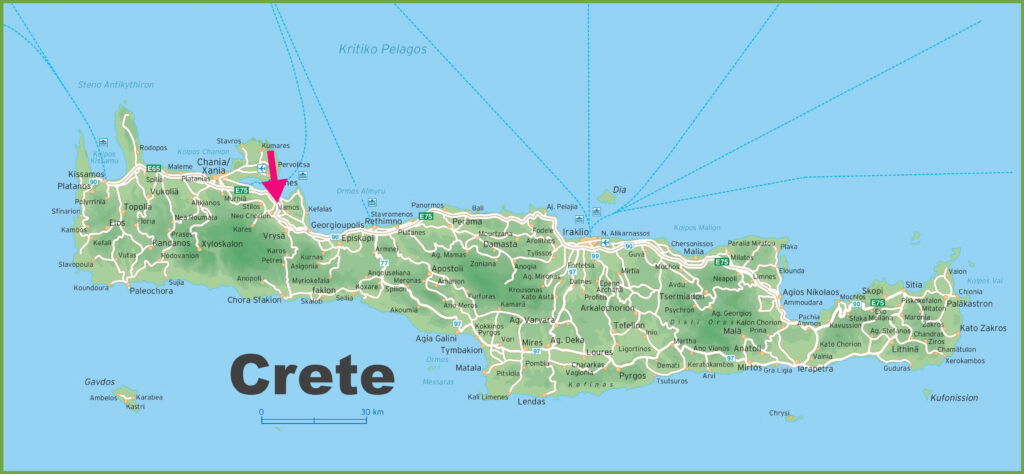
Ebullient Chef Koula
Koula Barydakis, our ebullient chef instructor, began lessons by pouring a shot of raki for herself and her students. Chanting lustily, we toasted the traditional Cretan diet, one of the healthiest in the world.

Why healthy?
Chef Koula explained: “We Cretans eat abundantly but simply. We consume much olive oil, olives, and seasonal fruits and vegetables. This includes wild mountain greens (horta), yogurt, cheese, lentils and beans. We eat meat once a week and on special occasions. (Plus fresh fish and seafood!)
“We always drink a lot of mountain tea (malotera, good for the stomach) while eating bread and olives.”
Recipes are flavoured with natural and native herbs like oregano, thyme and sage.
And, of course…the wine!
Locally produced red wine commonly accompanies lunch and dinner.
Sustainable Practices
When it comes to food, Koula justifiably points out that Crete has always practiced sustainable living without using the name. For example:
Raki—Crete’s most famous after-dinner drink—- is derived from the residue of grape pressing.
Most fruits and vegetables consumed are seasonal, not imported from faraway places.
Crops are grown naturally “like our forefathers” without fertilizers and pesticides.

Local animals help minimize waste
In Koula’s village, goats make short work of any scraps of food.
Chickens are really free range; fresh eggs, when cracked, show off bright orange yolks.
Even the scavenger street cats of Crete are part of the solution!
Learning a life skill
Koula says her parents sent her to hairdressing school to learn a trade skill.
They did not know, however, she also attended cooking school. While there, she refined her culinary skills as taught by her mother and grandmother.
At 16, Koula left Crete to travel abroad. Of course, she detoured, spending most of her time away as a chef in Toronto’s Greektown in Canada.
Eventually the Grecian sirens beckoned her back to her blessed home island. Where she now teaches popular cooking classes.
Cooking classes in Vamos, Crete
Under a patch of cobalt blue sky, Koula conducts her cooking classes in the village of Vamos. She uses an old olive oil press building. Renovated for her use, it’s the perfect Greek setting for food preparation.
In case of rare inclement weather, she moves to a house.

Today’s menu
During our session, we chopped, grated, mixed, pressed, formed—and dined on—rooster with Cretan pasta, kalitsounia pies, grape leaves with rice (dolmades), zucchini fritters, Greek salad, and garlic beets with yogurt salad.
Accompanied by liberal amounts of village wine, of course.
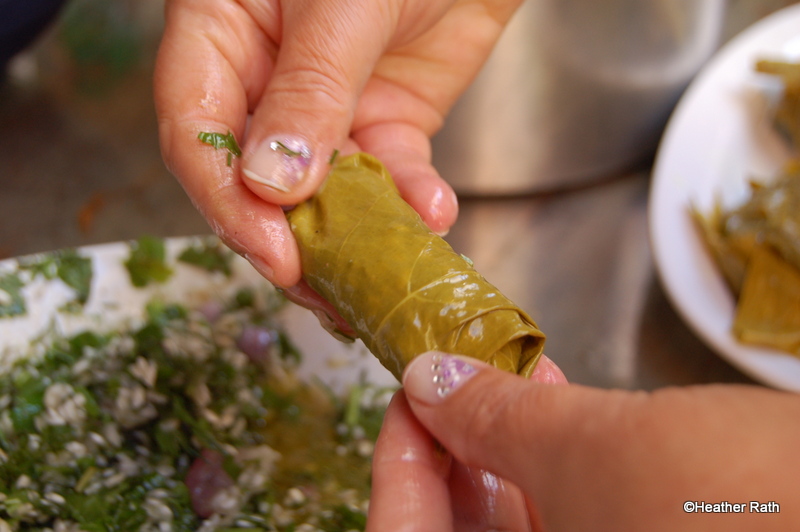
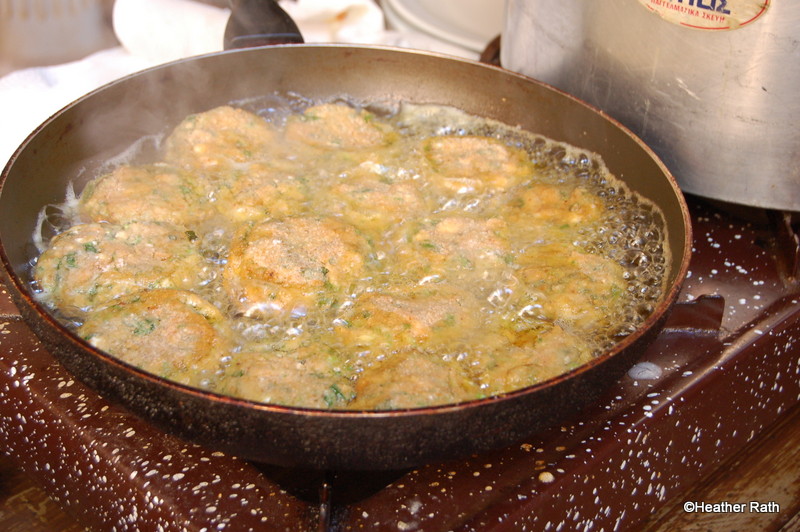
Beautiful, bountiful Crete
Cooking Cretan style is not the only lesson Koula taught us.
She is an exuberant ambassador for her island: “Crete is a beautiful island filled with bountiful food. The wild, natural beauty of the mountains and the ocean make you think that when God created Crete, He created all the beauty the human mind can imagine.”
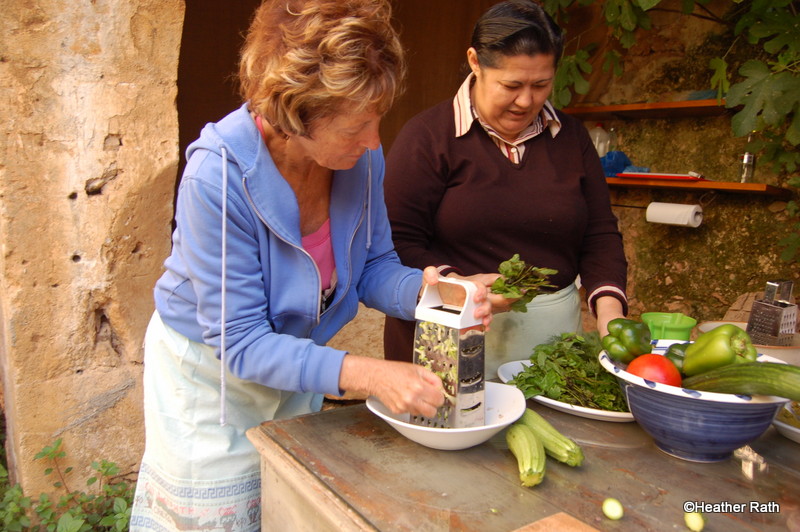
A Land of Fresh and Fragrance
“The land is so rich with olive, lemon, and orange trees and gardens. The fragrances alone can make you drunk. The wide variety of herbs and flowers from ancient times found on Crete are still used to cure pains and diseases,” explains Koula.
“Writers, explorers, scientists, and tourists all come to Crete to see it, study it, eat the tasty foods, drink the raki, and get high on the immortal wines of Crete.
“The people of Crete live simply. They always win your heart.” ***
A memorable meal
With a glass of wine that tastes like sunshine, Koula toasts us with: Kali Oreksi…which means ‘enjoy your meal’. We can hardly wait to experience our memorable dinner.
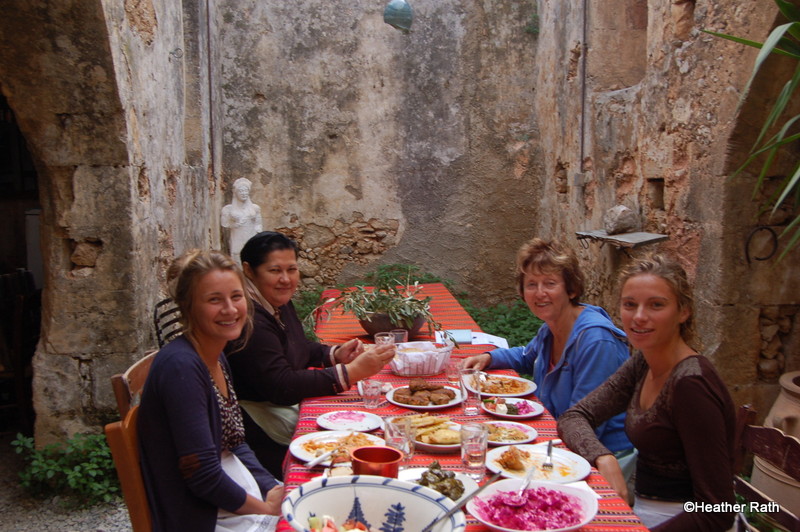
Books by Koula
Traditional Recipes of Crete and The Mediterranean Diet of Crete
COVID update—
As of mid-July 2020, Koula says “tourists are slowly starting to come to Crete. Flights are starting from a few countries like Germany, Holland, Canada, Switzerland. Soon England and Sweden. We are still looking for the best way to work and be safe.
“As you know, or heard, Crete had few Covid cases. The nine who were ill were foreigners.”
“I held my first cooking lesson on July 17 with a family from Germany. We wore masks and gloves. For now, we can only work with six people at one time.
“So far there are not many requests after all the cancelled bookings.”
But the future looks bright.
Safety first
As Koula says, “We will try our best to help people feel safe in Crete and Greece in general.”
Music of Crete
See more blogs
Travelled: Fall, 2011
